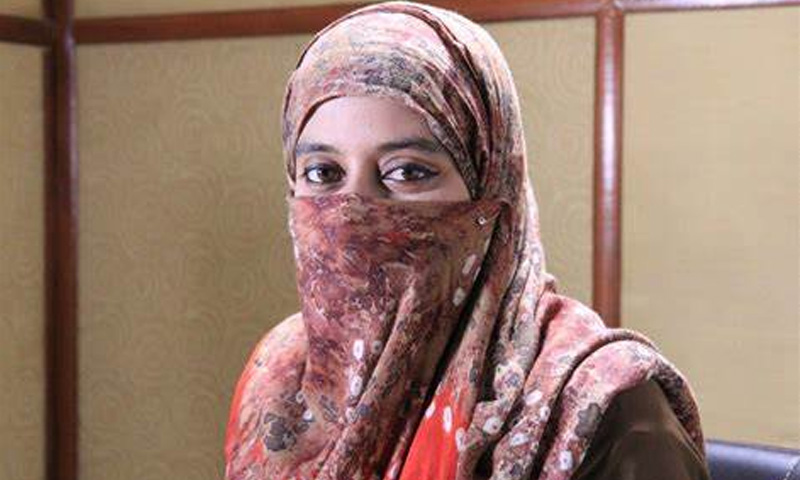- Web Desk
- 4 Hours ago
Iran’s missile blitz: changing landscape of Iran-Pakistan ties
The attack from Iran is perhaps so surprising and unexpected that it is becoming difficult for the majority of Pakistanis to digest that Iran has actually launched a missile attack on Pakistan.
When this news initially broke, like many Pakistanis, I also had the thought that Iran would later deny or explain that it was a result of some misunderstanding or that the missile misfired. If you remember, when General Bajwa was the army chief, India also launched a missile near a city in Punjab. India apologized, attributing it to a mistake. Although questions were raised about it as well, whether the actual firing of the missile was a mistake or if India wanted to test Pakistan’s defense system to see how effective it is in detecting and responding to missiles.
Now it is apparent that our radar or missile detection system cannot detect incoming craft or missiles from the Iranian side beforehand, and Iranian missiles are another addition to this series.
So, did Iran also take advantage of the examples of America and India and fire missiles at us, in which it is being told that some innocent children have been killed? Tehran says that Israeli-backed groups inside Pakistan were attacking Iran. Iran not only attacked inside Pakistan but also fired missiles against such groups in Syria and Iraq. Iran is calling all these groups Israel’s proxies. Iran has actually attacked in the American style, that Americans think that whichever country poses a threat to them or from there an attack on Americans can happen or their interests are under attack, then they have the right to attack with drones or missiles. Now the Iranians also think that if America can take action against terrorists in different parts of the world, especially Afghanistan, Pakistan, Syria, Yemen, Syria, Iraq and other parts of the world, and no one can say anything to it, then why can’t Iran do so, which, like America, considers itself a victim of terrorism by different groups.
The principle of the world is that first tell the country that terrorism is being exported from your side and hurting our country. You take action against them. If the host country cannot take action and this series continues, then the victim country has the right to take action against such groups inside the host country. The question is whether Iran also considers itself equal to America, which can take action wherever it wants and no one has the courage to attack it again or raise a finger?
Let’s assume that Iran has also reached the level of America and its message from the attacks inside three countries is that Iran is now ready to fight with anyone. But has Tehran also thought that by using this right, Iran has actually smoothed the way for Israel and America. Both countries have been looking for an excuse to attack Iran for a long time to reduce Iran’s military power. Some Middle East countries were also afraid of Iran’s military power and they also sought support in the American and Iranian tension.
Although Saudi Crown Prince Mohammed bin Salman took a big step when he ended his enmity with Iran under the influence of China and restored diplomatic relations. But in these circumstances, when after the Ukraine war, Israel’s bombing in Gaza is taking the region towards a dangerous war and the Middle Eastern countries are trying to stop the spread of this war, at this time Iran has attacked with missiles inside three Muslim countries and has poured petrol on this bloody conflict. The most happy would surely have been America and Israel from these attacks because they know that Pakistan has always refused to support any attack or war against Iran on one side and always supported Iran in this matter.
Now the work of Israel and America may have become easier. Both countries also accuse Iran of funding non-state actors in Syria, Yemen and Lebanon for terrorism, and now Iran has attacked inside Pakistan, Syria and Iraq.
So has Iran dug a new hole for itself? This is not true that Iran has not helped Pakistan. Iran was the first country to recognize Pakistan after its independence. The Pakistani anthem is written in the Persian language. The Shah of Iran always supported Pakistan and considered himself a big brother and helped Pakistan. Iran supported Pakistan in the 1965 and 1971 wars and even after 1977, he sent a message to India to save West Pakistan that if Indira Gandhi attacked West Pakistan, it would be considered an attack on Iran. If you review the diplomatic correspondence after Pakistan’s independence, you will find that Pakistan mostly sought guidance from Iran at that time. On September 13, 1947, Iran was requested to provide a copy of its constitution and law. The Iranian constitution was requested as a model.
Pakistan-Iran relations improved when Sikandar Mirza became the ruler. He was from a feudal family of Bengal and had good diplomatic relations with Iran. Sikandar Mirza was Shia, so Iran came closer to Pakistan. Sikandar Mirza’s relations with Iran became more stable when he married an Iranian woman, Nahid. Nahid was the wife of an Iranian defense attaché in Karachi. Their meeting turned into love, and Nahid divorced her first husband and married Sikandar Mirza. Nahid was the daughter of a famous Iranian politician and parliamentarian, Taimur Kalai. Nahid Mirza’s cousin Nusrat Isfahani later married Zulfikar Ali Bhutto. When the Shah of Iran was overthrown in 1979, the new rulers changed their policy towards Pakistan. Iran increased its influence inside Pakistan.
The Shah of Iran had a different nature of relations with Pakistan, but the new rulers started giving it a political colour after the revolution. The Shah of Iran played the role of a big brother who helped Pakistan in every difficulty. Whenever Pakistan was in trouble, the Shah of Iran ran to help, although Iran also had its interests in it. However, after the 1971 war, the Shah of Iran feared that Pakistan might not survive. In a new book on Iran, author Alex Vantanka writes that Reza Shah was forced to think about Pakistan that a weak friend who you expect to help becomes a burden on you. However, the Shah of Iran started trying to save West Pakistan after East Pakistan and made Pakistan an important pillar of Iran’s foreign policy so that Pakistan would not break again. He met Henry Kissinger and told him that he would defend Pakistan in any case. He sent a message to India that if West Pakistan was attacked, Iran would help Pakistan in every way. Iran could not see Pakistan breaking further. The Shah considered himself a benefactor of Pakistan who had to take care of his weak neighbour because Iran’s interests were also linked with Pakistan.
However, the situation changed after the Iranian revolution. This is another long story as who is to be blamed, Pakistan or Iran. I don’t know if the Shah of Iran was alive today, he would be shocked by the missiles fired by Iran inside Pakistan like us Pakistanis or he would understand Iran’s right in changing circumstances. How time changes that the Shah of Iran who threatened India that he would fight a war with Pakistan side by side, today missiles have been fired from the same Iran. How times change, today missiles have been launched from the same Iran, whose Shah had threatened India that he would fight shoulder to shoulder with Pakistan, if India attacks it.






